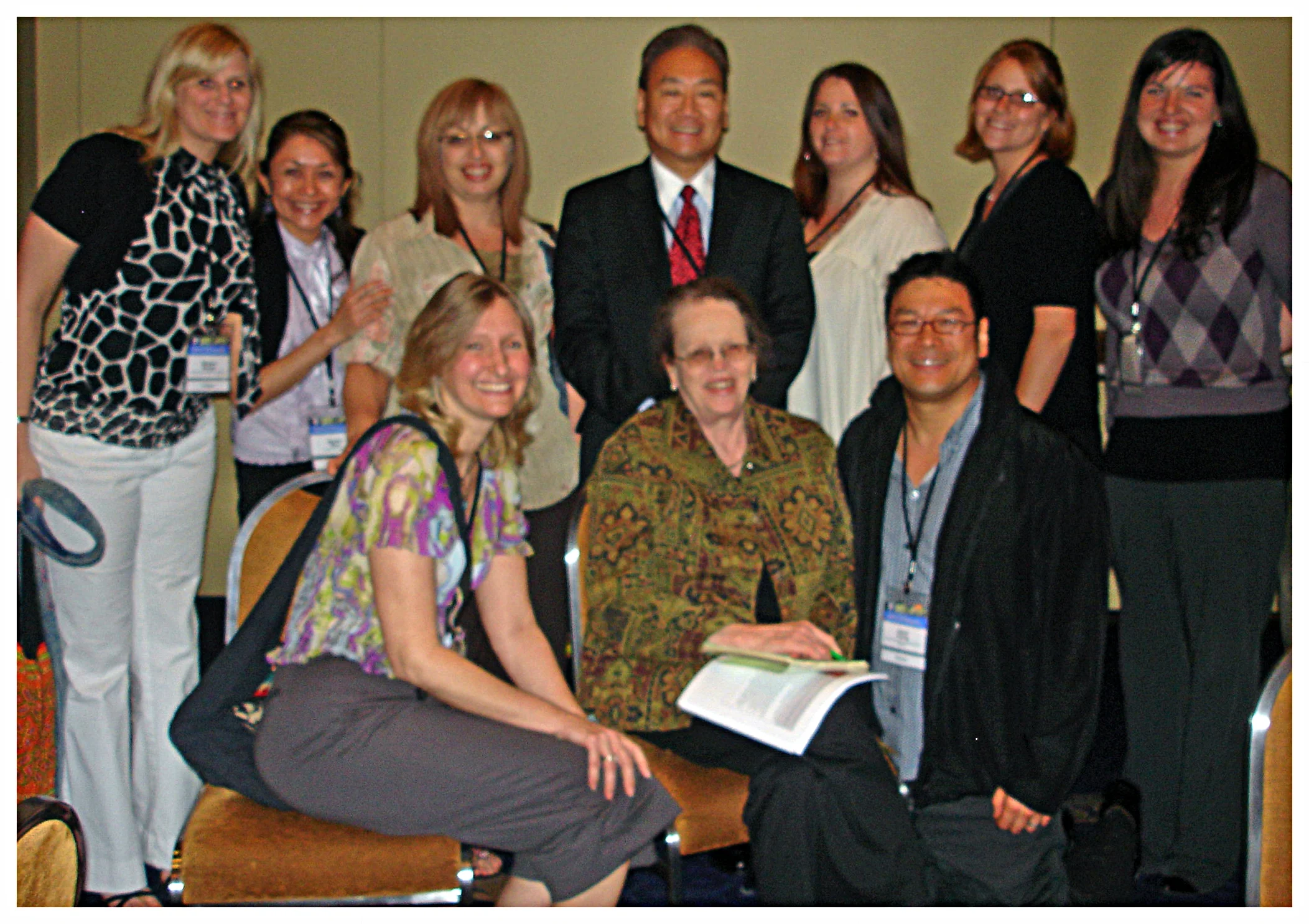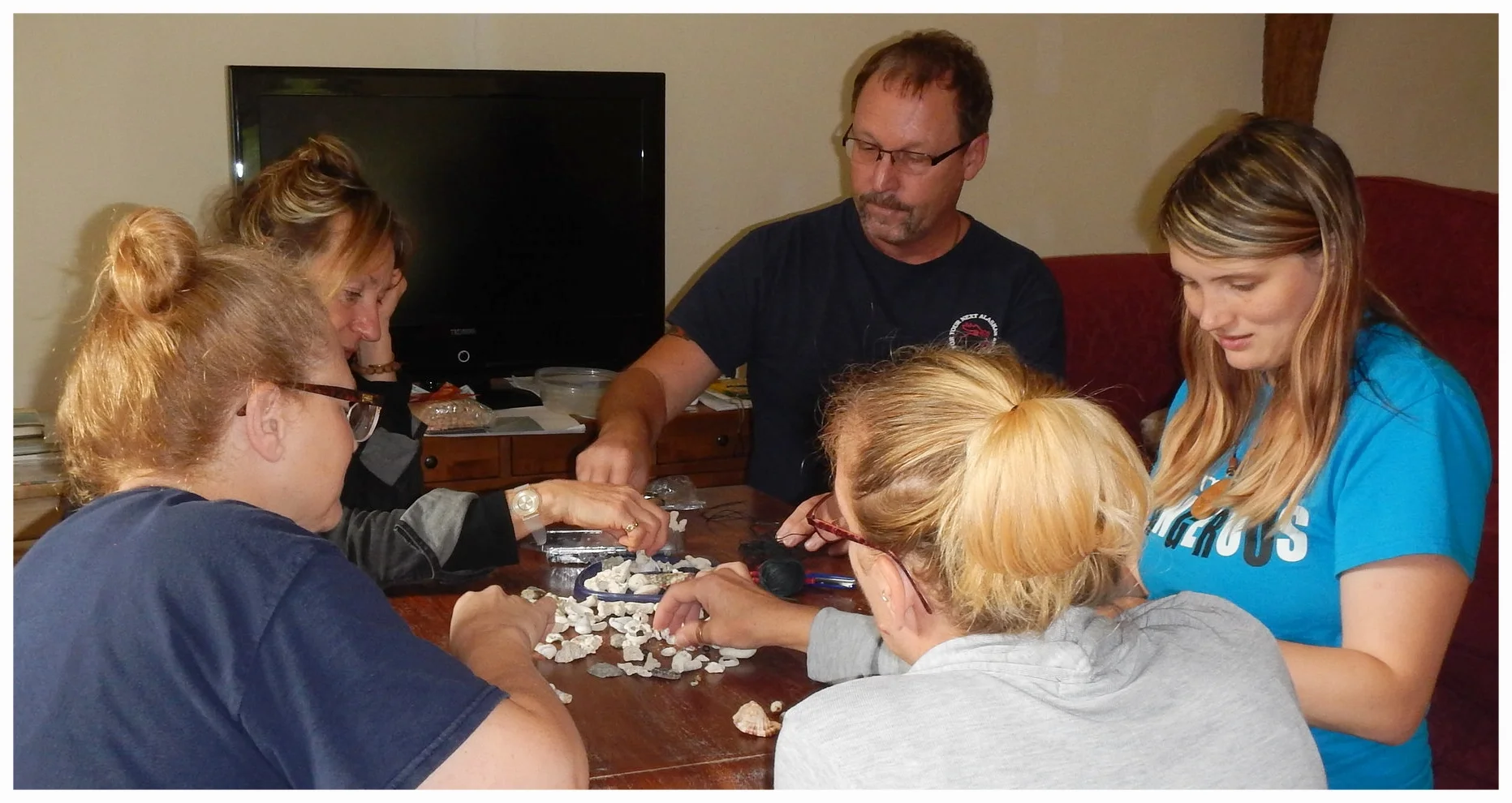Roseli Sandra West, MSW
Counselor, Tampa, Florida
Former Counselor, Center for Safety and Empowerment, YWCA. Topeka, Kansas
Roseli is a licensed clinical social worker, receiving her MSW in Social Work and BAS in Human Services from Washburn University. While there, she completed the Morita Therapy Certificate Program under Dr. Ogawa, and also studied Morita Therapy abroad at conferences in England and Australia. Roseli is bilingual. Her services are invaluable to all clients, and particularly the Spanish-speaking.
Roseli Sandra Gonzales West, MSW
“Before studying Morita Therapy, I felt anxious about my future and limited by unhealthy, self-centered behavior. Implementing Morita Therapy has provided me a practical way of accepting reality for what it is and taking necessary action to improve my life. I have been working as a domestic violence counselor for four years. Victims/survivors of such violence often experience a lack of confidence and lowered self-esteem from the abuse, making them believe that they are hopelessly and helplessly trapped. In my counseling sessions, I incorporate a variety of Morita techniques to assist clients in developing strength and courage by teaching them to acknowledge that their feelings and thinking are natural to their situation, and to develop a timely action plan to achieve what they truly desire.”
Roseli (second from left top) with Dr. Ogawa and some of his Morita certificate students at the International Congress of Morita Therapy in Melbourne, Australia, 2010
Don Crowder, MSW, LCSW, LCAC
Team Leader
Psychosocial Rehabilitation Group, Regional Children’s Community Mental Health Center,
Topeka, Kansas
Don has presented clinical papers and a poster session at the International Congress of Morita Therapy at the University of Exeter. He completed the Morita Therapy Certificate Program under Dr. Ogawa, and has been for many years in private practice, served overseas in Okinawa and Germany for the USDOD in youth and family counseling, and was a university instructor in an addictions counseling masters degree program.
Don Crowder, MSW, LCSW, LCAC
“I am sharing my experience and application of Morita Therapy as a student and mentee under Dr. Ogawa. As a caregiver trained in Morita, I developed a program to visualize the stages of care applied to a children’s psychosocial program. In Kansas, psychosocial rehabilitation group (PRG) is one of the most intensive levels of care, only appropriate for children with acute needs, and is transitory intervention. Over summer 2018. I instituted 4 stages of progress (paralleling residential Morita Therapy) through the YDP program: REST for Recuperation-Education-Structure-Transition. While the daily ‘curriculum’ are evidenced-based topics utilized widely in the United States, the programing reflects a Moritist approach. Overall, the quality of the summer 2018 PSG program was recognized as more calm than prior, more valued by staff caregivers, notable in the effectiveness and efficacy by clinic executives, and well attended by the children. I suggest this improvement is directly due to Morita concepts and the teachings of Dr. Ogawa in how to apply these methods to a non-residential setting within a Western cultural population.”
Don leading a creative activity in Exeter, England at a Morita Therapy Residential conducted by Dr. Peg LeVine (left rear) and Dr. Ogawa
Cesario Garcia, MSW
Cesario Garcia, MSW
Child Mental Health Therapist
Cowlitz Tribal Health, Seattle, Washington
Cesario completed the Morita Therapy Certificate Program and Victim/Survivor Services Certificate under Dr. Ogawa. He received his BSW and MSW from Washburn University and has worked as a child and youth therapist for a number of years. Cesario’s current work highlights the link between Morita Therapy, Nature-based therapies, and Indigenous healing traditions. He is also an advance student of the Niche Psychotherapy/Classic Morita Therapy Center directed by Dr. Peg LeVine of Australia.
“I am a child mental health therapist at Cowlitz Tribal Health in Seattle, Washington. I work with enrolled members of Native American tribes and/or descendants of their families. Since I have begun studying Morita Therapy, it has shifted the way I think of what it means to be a therapist and has given me many assets when working with the Native community, who are often survivors of complex trauma. In today’s mental health system, much emphasis is placed on the impacts trauma has on people’s cognitions. While this is a crucial piece that must be addressed, Morita Therapy taught me that therapy must include a holistic approach (spiritual, emotional, mental and physical), and should also incorporate nature into treatment. Morita Therapy reinforces many traditional Native ways of healing, often seen through the Medicine Wheel, a representation of a holistic approach to wellbeing, and, also, through the use of nature in ceremonies.”
Cesario helping to prepare dinner along with other trainees during Dr. Ogawa’s Morita Intensive Residential in Tacoma, Washington, Summer 2017
Saori Miyazaki, MA, LMFT
Saori Miyazaki, MA, LMFT
Private Practitioner
San Francisco, California
Saori Miyazaki is a licensed marriage and family therapist, providing both Morita and Naikan therapies as well as Western methods to people with anxiety and depression issues at her private practice in San Francisco, CA. She also enjoys giving presentations on mindfulness related to Morita and Naikan to high school and college students. Most recently Saori has lectured at Stanford University regarding Morita Therapy. She is originally from Tokyo, Japan. www.ReflectwithMe.com
"I was introduced to Morita therapy when I was a graduate student studying Western psychology modalities in California. At that time, I was working with a population who had reservations about going to therapy for their anxiety and depression issues. I decided to present Morita Therapy to them. Through its clear concepts and concrete methods, Morita Therapy helped de-stigmatize their views on mental health therapy.
I also have found that Morita philosophy can be useful for those in the general population. For example, it can aid those who are “trapped in a rut” and not able to move forward in their lives. Morita helps recalibrate our mindset and energy toward realistic action. Morita is also a great tool for people who want to be more mindful in their daily lives but do not know how to implement it. It has assisted in my use of “mindfulness” approaches with my clients by providing a meaningful theoretical context to actually practice and apply the rather vague concept and assumed purpose of mindfulness.
Saori presenting on Morita concepts at Stanford University’s 2019 “Mindfulness Summer Program” for Japanese High School students, Palo Alto, California
Dr. Ogawa's clinical Morita books are one of the few very comprehensive and thorough Morita books in English. I also recently attended Dr. Ogawa's five-day Morita Intensive Residential Training. It truly deepened my understanding of Morita concepts because you practice them intentionally during the training in daily living. Anyone can read books after books on Morita; however, it is powerful to actually experience what it means to benefit from Morita principles, under Dr. Ogawa's guidance. Whether you are a clinician, teacher, or layperson, I highly recommend the residential training."
Saori (center) at the Spring 2019 Florida Residential Intensive. Photo by Ivan ZhongYue Lim, participant from Singapore.
Theresa Benson, PhD
Licensed Psychologist
Santa Fe, New Mexico
Dr. Benson has been studying Morita Therapy with Dr. Ogawa since 2000, attending workshops and participating in intensive residentials and study abroad in Japan and Australia. She has taught introductory Morita Therapy credit courses at the University of Illinois and is a consultant for the International Committee of Morita Therapy. Dr. Benson is a licensed clinical psychologist and past director of a sexual assault program. Her doctorate is from the University of Akron with a dissertation on men who inflict violence on their partners, and her Masters in Holistic Health is from JFK University. Dr. Benson is a multimedia artist, combining artwork with poetry/narrative.
Theresa Benson, PhD
“Dr. Ogawa provides a warm, attentive presence when offering Morita Therapy education to students and colleagues. Under his guidance, I was able to deepen my understanding of Morita principles, and incorporate this approach into my work with university counseling center and private clients. Dr. Ogawa teaches through an experiential immersion consistent with the foundational framework of Morita of a Nature-centered and homelike environment for learning. I have been positively changed personally and professionally by Dr. Ogawa and Morita Therapy. Morita theory and methods blend well with my practice in holistic wellness, expressive arts therapies, and mindfulness-based approaches. As a psychologist and artist, I resonate with Morita’s focus on opening consciousness beyond self-centered thoughts and emotions and the freeing of creativity and imagination.”
L_R: Drs. Ogawa, Benson, Ishiyama, Minami, LeVine, and Mercer at the International Morita Therapy Congress, Melbourne, Australia, 2012.
Rebeca Garcia, BAS
Preschool Teacher
Falls Church, Virginia
Rebeca is a graduate of Washburn University in Human Services and the Morita Therapy Certificate Program. She did her Morita study abroad at the University of British Columbia. Rebeca has completed internships in trauma care of children in hospital settings. She is an avid world-traveler and dedicated teacher.
Rebeca planting flowers during a Morita Therapy Intensive Residential at Subterra, Kansas 2008
Rebeca Garcia, BAS
“I was among the first students to receive the accredited certificate in Morita Therapy under Dr. Ogawa’s guidance. After taking the initial Morita class with Dr. Ogawa, I quickly started adopting the Morita principles into my personal life. ‘How you do anything is how you do everything’ strongly resonated with me. My approach to everyday situations and tasks began to change as more attention was given to each one and my overall awareness increased. As a preschool teacher, I use Morita principles working with children. I’ve found myself more intentional in my lesson plan, vitally present among my students, and wonderfully flexible in the flow of our daily activities. I am also able to teach my little ones about emotions; how to face them and ride them out whenever they come.
I’m fortunate to have had Dr. Ogawa as my former academic advisor and professor and now as my Sensei, colleague, and friend. I’m confident Morita will give many life-changing benefits to others as it has for me.”
Rebeca in Vancouver’s Chinatown for an awakening of senses excursion during the 2007 International Congress of Morita Therapy
George van Elst, Msc, Ed
George van Elst MSc Ed
Lecturer
Fontys University of Applied Sciences, Netherlands
Department HRM and Psychology
Faculty Applied Psychology
Health promotion and education have been George’s main themes in the past 40 years, both in his professional and personal life. His dedication to lifelong learning and development includes the work of Dr. Morita as his most recent source of inspiration.
At the University of Applied Sciences, George teaches Psychology, coaching- counseling training, and body-mind skills. He was born and has lived for more than 40 years in Amsterdam, but now lives since 2006 in Belgium with his wife, daughter, and son. In addition to his work at the university, George gives Qigong (Yi Quan-based) lessons in Belgium.
“After I discovered Morita Therapy, I started to study its philosophy and practice guided by Dr Ogawa. Morita theory and methods fit well with my personal and work life and other interests such as Qi Gong, Chinese medicine, Taoist philosophy, Zen Buddhism, and Experiential/Embodied learning. When Dr. Ogawa invited me to an intensive residential overseas, I first responded from my anxiety and hesitated. But not much later, I jumped into it. I longed to learn more. The 5 days of the residential intensive were a very rich learning experience, in which the Morita concepts came to life, became tangible. We were immersed in various learning experiences, but above all natural every day learning (through experiental assignments and feedback from everyday life). Dr. Ogawa teaches authentic Morita Therapy, has a lot of (experiential) knowledge, and clearly understands Morita Therapy in its original essence. This residential was so much more than literature alone could give me—a sufficiënt basis to look forward to the next learning steps.”
George at the 2019 Florida Residential Intensive, sharing the powerful life forces of Nature, humans, and other sentient beings (Gretchen’s horse, “BO.”)















